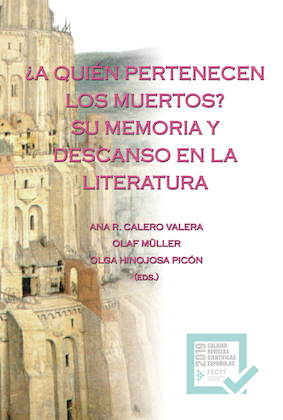Above the Battle: Representations of the anonymous soldier in Romain Rolland's work
DOI:
https://doi.org/10.7203/qdfed.24.16337Keywords:
Romain Rolland, First World War, soldier, Clerambault, Más allá de la contienda Abstract
Abstract
Committed to pacifism and humanism, Romain Rolland lives with the First World War a personal and authorial debacle, seeing himself practically alone in a Europe where the “regiments of the pen” were orchestrating the hatred between the peoples. Instead, Rolland collaborated with the International Prisoners-of-War Agency in Switzerland, where he lived in a sort of exile until the end of the conflict. Hence, there he gains access to soldier’s testimonies from both sides, which he will later reflect in his articles, published in the volume Au-dessus de la mêlée (1915), in his diaries, correspondence with authors such as Stefan Zweig, and in the work that culminates this fateful period: Clerambault (1920).
 Downloads
Downloads
Downloads
Published
How to Cite
-
Abstract840
-
PDF (Español)585
Issue
Section
License
 Este obra está bajo una licencia de Creative Commons Reconocimiento-NoComercial-SinObraDerivada 4.0 Internacional.
Este obra está bajo una licencia de Creative Commons Reconocimiento-NoComercial-SinObraDerivada 4.0 Internacional.
Authors who publish with this journal agree to the following terms:
- Authors retain copyright and grant the journal right of first publication with the work simultaneously licensed under a Creative Commons Attribution License that allows others to share the work with an acknowledgement of the work's authorship and initial publication in this journal.
- Authors are able to enter into separate, additional contractual arrangements for the non-exclusive distribution of the journal's published version of the work (e.g., post it to an institutional repository or publish it in a book), with an acknowledgement of its initial publication in this journal.
- Authors are permitted and encouraged to post their work online (e.g., in institutional repositories or on their website) prior to and during the submission process, as it can lead to productive exchanges, as well as earlier and greater citation of published work (See The Effect of Open Access).




